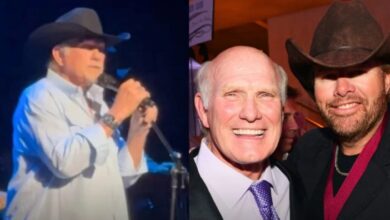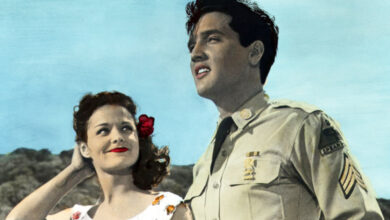The kids today didn’t have any idea their great grandparents were this cool
“Rock Around the Clock,” performed by Bill Haley & His Comets, is widely regarded as a seminal recording that propelled rock ‘n’ roll into mainstream culture. Written by Max C. Freedman and James E. Myers (under the pseudonym Jimmy DeKnight) in late 1952, the song was initially offered to Bill Haley, who was then leading a western swing band called The Saddlemen. However, due to a dispute between Myers and Haley’s producer at Essex Records, Dave Miller, Haley was unable to record the song at that time. Consequently, the first recording was made by Sonny Dae & His Knights on March 20, 1954, but it failed to gain significant attention.
On April 12, 1954, Bill Haley & His Comets recorded “Rock Around the Clock” at the Pythian Temple studios in New York City. Despite its energetic blend of rhythm and blues with country elements, the initial release did not achieve notable success, peaking at number 23 on the Billboard chart and selling around 75,000 copies.
The song’s breakthrough came in 1955 when it was featured in the opening credits of the film “Blackboard Jungle,” a drama addressing juvenile delinquency. This exposure resonated with the youth, leading to a surge in the song’s popularity. Subsequently, “Rock Around the Clock” re-entered the charts and climbed to the number one position on the Billboard Hot 100, where it remained for eight consecutive weeks.
The success of “Rock Around the Clock” marked a turning point in music history, symbolizing the rise of rock ‘n’ roll as a dominant genre. It bridged racial divides by bringing African American rhythm and blues to a broader, predominantly white audience. This cultural shift not only transformed the music industry but also influenced social dynamics in the United States during the 1950s.
Bill Haley & His Comets capitalized on the song’s success by appearing in the 1956 film “Rock Around the Clock,” which showcased the burgeoning rock ‘n’ roll movement. The film featured performances by various artists and contributed to the genre’s growing acceptance and popularity.
Despite the song’s monumental impact, Bill Haley’s popularity in the United States began to wane by the late 1950s, overshadowed by younger artists like Elvis Presley. However, Haley and his band continued to enjoy success internationally, particularly in Europe and Latin America, where they maintained a dedicated fan base.
“Rock Around the Clock” experienced a resurgence in the 1970s when it was featured in the film “American Graffiti” and as the original theme song for the television series “Happy Days.” These appearances reintroduced the classic hit to a new generation, cementing its status as an enduring anthem of the rock ‘n’ roll era.
Over the decades, “Rock Around the Clock” has been recognized for its historical significance. In 2004, it was ranked number 158 on Rolling Stone magazine’s list of “The 500 Greatest Songs of All Time.” Additionally, the American Film Institute placed it at number 50 on its “100 Years…100 Songs” list, highlighting its influence in American cinema.
In 2018, the song was selected for preservation in the National Recording Registry by the Library of Congress, which deemed it “culturally, historically, or aesthetically significant.” This honor reflects the song’s lasting impact on music and American culture.
Today, “Rock Around the Clock” is celebrated as a pioneering track that helped define the rock ‘n’ roll genre. Its legacy endures through countless covers, references in popular media, and its influence on generations of musicians who followed in Bill Haley’s footsteps.



